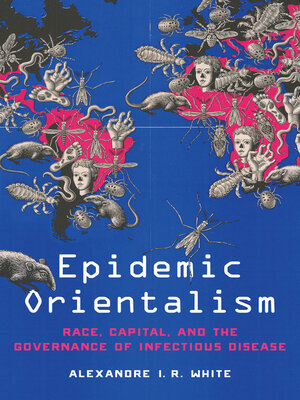Epidemic Orientalism
ebook ∣ Race, Capital, and the Governance of Infectious Disease
By Alexandre I. R. White

Sign up to save your library
With an OverDrive account, you can save your favorite libraries for at-a-glance information about availability. Find out more about OverDrive accounts.
Find this title in Libby, the library reading app by OverDrive.



Search for a digital library with this title
Title found at these libraries:
| Library Name | Distance |
|---|---|
| Loading... |
For many residents of Western nations, COVID-19 was the first time they experienced the effects of an uncontrolled epidemic. This is in part due to a series of little-known regulations that have aimed to protect the global north from epidemic threats for the last two centuries, starting with International Sanitary Conferences in 1851 and culminating in the present with the International Health Regulations, which organize epidemic responses through the World Health Organization. Unlike other equity-focused global health initiatives, their mission—to establish "the maximum protections from infectious disease with the minimum effect on trade and traffic"—has remained the same since their founding. Using this as his starting point, Alexandre White reveals the Western capitalist interests, racism and xenophobia, and political power plays underpinning the regulatory efforts that came out of the project to manage the international spread of infectious disease. He examines how these regulations are formatted; how their framers conceive of epidemic spread; and the types of bodies and spaces it is suggested that these regulations map onto. Proposing a modified reinterpretation of Edward Said's concept of orientalism, White invites us to consider "epidemic orientalism" as a framework within which to explore the imperial and colonial roots of modern epidemic disease control.







